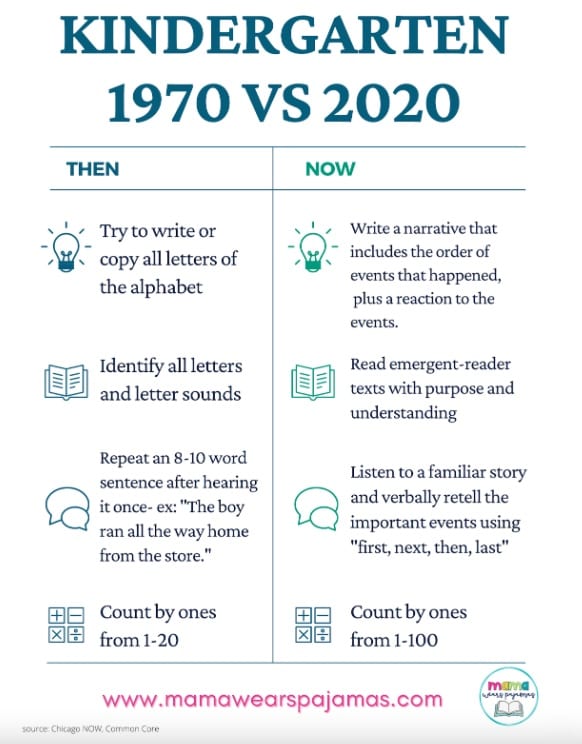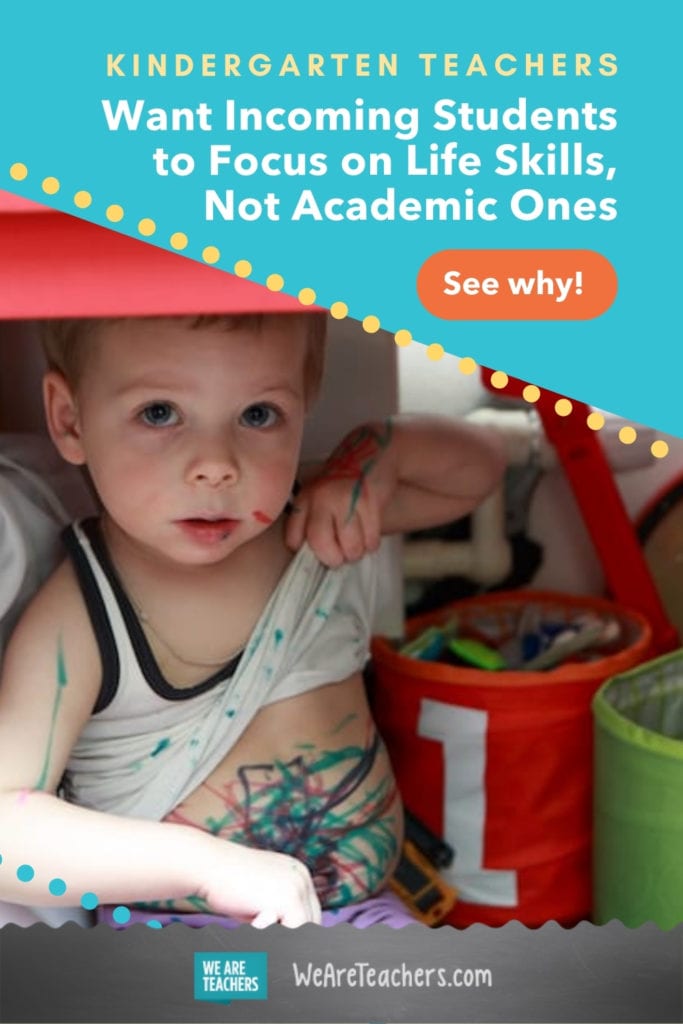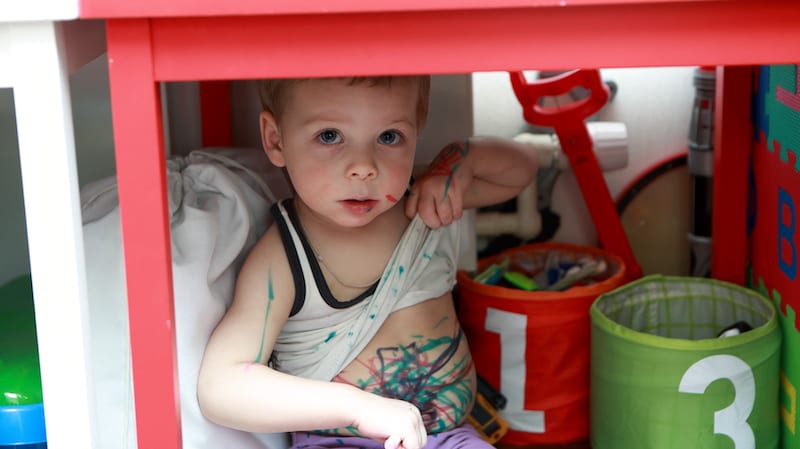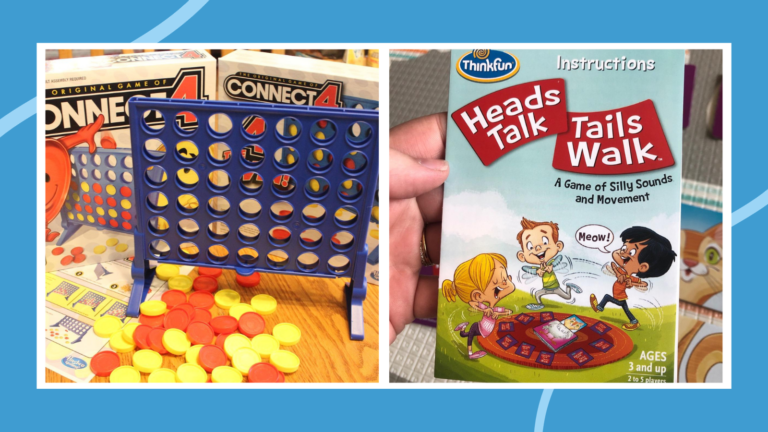It’s no surprise that academic rigor has become the main focus of kindergarten in the United States. Kindergarten teachers are expected to teach a total of 98 academic standards to their class of 20+ five-year-olds. Those 98 standards were written with the assumption that these five-year-olds are entering kindergarten with a mile long list of academic skills. But how do you even begin to teach academics to kids that haven’t even learned to sit and listen to a story? It’s critical that incoming kindergartners know life skills first.
Thanks to the internet, I reached out to over 70 Kindergarten teachers across the U.S. and asked them:
“What skills do you wish every incoming kindergartner would have mastered when they come to your classroom on the first day of school?”
Out of the 73 responses, only 9 of them were academic related. All other responses were life skills.

Here are the life skills you should teach your child before they enter kindergarten
Get all of these skills in a printable checklist here!
Using the restroom
Teach them how to:
- Flush the toilet.
- Use a urinal without pulling their pants down.
- Wipe themselves.
- Shut and lock a bathroom stall door.
- Undo clothing.
[contextly_auto_sidebar]
Eating lunch
Teach them how to:
- Open a milk carton.
- Open string cheese.
- Open every item in their lunchbox independently.
- Clean up at the end of lunch.
- Determine what to throw away vs. what to keep (disposable vs. reusable).
- Know if they brought a lunchbox that day.
- Know how to put their lunchbox in their backpack.
- Know what their lunchbox looks like
Properly adjust clothing
Teach them how to:
- Zip, button, snap, tie.
- Put on a jacket.
- Fasten their belt.
- Tie or velcro their shoes.
- Understand that they have to keep their clothes on at school.
Knowing their important family info
Teach them their:
- First and last name.
- Parents’ first and last name.
- Caretaker’s phone number.
Using proper social skills
Teach them to:
- Respectfully answer an adult.
- Respond when their name is called.
- Know to wait their turn.
- Gracefully lose.
- Be kind to one another.
- Know the difference between tattling vs. telling.
Behaving in a classroom
Teach them to:
- Sit in a chair.
- Know how to follow a two-step direction.
- Sit quietly and listen to a story.
- Keep hands to themselves.
- Know how to do NON-PREFERRED tasks (we have to let our kids be bored sometimes).
- Pack their backpack independently.
- Understand positional words.
- Blow their nose.
Using motor skills
Teach them to:
- Hold a pencil.
- Use crayons.
- Hold scissors.
- Roll play dough.
Why is teaching life skills so important?
Imagine that you have to teach the standard RL.K.4 “Ask and answer questions about unknown words in a text.” (just one of those 98 standards you are held accountable for!).
You have 30 minutes until lunchtime, which is just enough time to read a story. You ask students to follow a two-step direction of pushing their chairs under the desks and moving to sit their carpet spots. Unfortunately, four students haven’t learned this skill. So, one by one, you walk them to their spot. Then one student doesn’t know how to unbutton his pants and has to use the restroom, so you pause to help him. Another student has never learned to sit and listen to a story, so he rolls around the carpet. Unfortunately very few of your incoming kindergarteners knew the above life skills and now there’s only a few minutes left until lunch.
Perhaps you can read the story tomorrow.
I’m a teacher and a toddler mom, yet even I would have overlooked most of these life skills when preparing my little guy for school.
Why? It’s so much easier for me to just do these things FOR him. Is it really necessary to teach him all of these things?
Yes. Yes, it is. And here’s why.
When he’s in the lunchroom with only 20 minutes to eat, and there are 50 other kindergartners that need their string cheese opened, I know that he will sit there for the entire 20 minutes waiting for help and forget to eat the rest of his food.
I get it now. Imagine the amount of time we would give back to our kindergarten teachers if every parent made sure their child knew these skills? Imagine how much more time they could devote to teaching those 98 academic standards.
What other life skills should incoming kindergartners know? Share in the comments below.
Want more articles like this? Make sure to subscribe to our newsletter!


